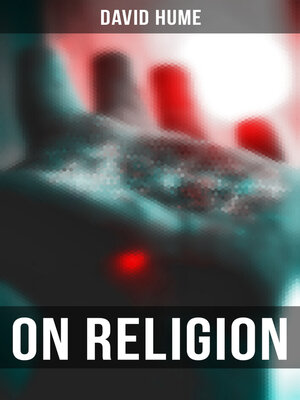David Hume
ebook ∣ On Religion: The Natural History of Religion & Dialogues Concerning Natural Religion
By David Hume

Sign up to save your library
With an OverDrive account, you can save your favorite libraries for at-a-glance information about availability. Find out more about OverDrive accounts.
Find this title in Libby, the library reading app by OverDrive.



Search for a digital library with this title
Title found at these libraries:
| Loading... |
In 'David Hume: On Religion', the renowned philosopher delves into the complex relationship between reason and religion, challenging traditional views with his insightful and provocative arguments. Hume's writing style is characterized by its clarity and logical precision, making the book accessible to readers of all backgrounds. Set in the Enlightenment era, the book reflects Hume's skepticism towards religious dogma and his emphasis on empirical evidence in forming beliefs. Through engaging with various religious concepts, Hume encourages readers to critically evaluate their own beliefs and question the foundations of faith. The book serves as a significant contribution to the dialogue on religion and philosophy, presenting a profound and thought-provoking perspective on the subject. David Hume, a Scottish philosopher of the 18th century, was known for his influential works on philosophy, ethics, and religion. His skeptical views and rational approach to knowledge have had a lasting impact on Western philosophy, shaping the way we think about reason and belief. Hume's own religious skepticism and empirical approach to understanding the world are evident in 'David Hume: On Religion', reflecting his intellectual rigor and critical thinking skills. For readers interested in exploring the intersection of philosophy and religion, 'David Hume: On Religion' is a must-read. Hume's insightful analysis and compelling arguments will challenge readers to reconsider their own perspectives on faith and reason, making this book a valuable addition to any philosophical library.






